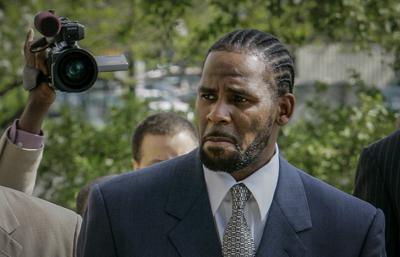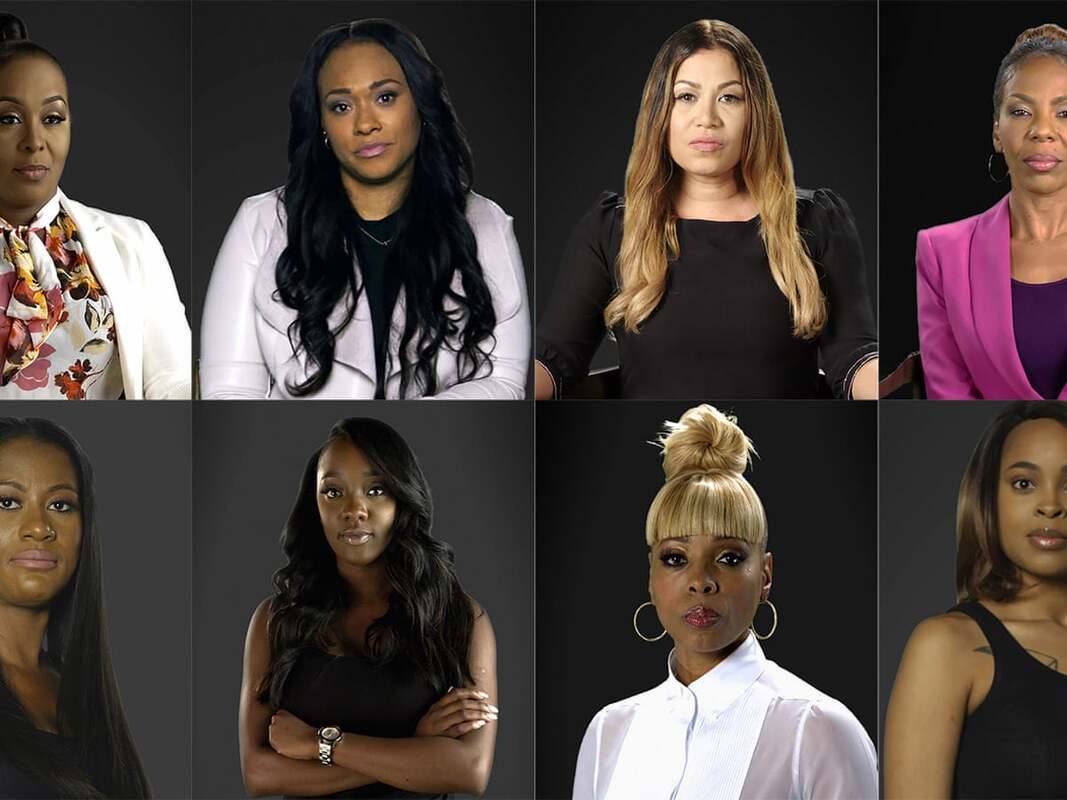"On September 27th, jurors found R&B singer R. Kelly guilty of all nine counts of racketeering, bribery, sexual exploitation of a child, and seperate charges of sex trafficking. The real inquiry of the conviction is why it took so long, considering the decades of countless lawsuits against him—the majority of which were alleged by young Black women." --Lola Christ, 8th Grade

The trial against Kelly began August 18th, although charges were filed sometime during the duration of 2019. The trial was delayed until now because of the pandemic and lasted five and a half weeks, coming to a close September 27th. Some of the brave witnesses who took the stand throughout the ordeal include Jerhonda Pace, Azriel Clary, Faith, Stephanie, Sonja, and others who used a variety of pseudonyms to conceal their identity.
The first of these women to testify was Jerhonda Pace, who claimed that Kelly sexually abused her at the age of 16 and on one occasion went as far as to choke her until she passed out. Later commenting on an Instagram post following the conviction, she expressed her feelings regarding the backlash stating, “Speaking out about abuse is not easy, especially when your abuser is high-profile.” Another of the brave survivors to come forward was Azriel Clary who—as formerly mentioned—testified under the pseudonym “Jane.” Clary recounted meeting Kelly at 17 and how he regularly sexually abused her, as well as how she was constantly regulated to specific rooms in his tour bus.
Lizzie Martinez claimed during her minimal encounter with Kelly, his bodyguard slipped her a piece of paper balled up with the R&B singer's number written on it. “I said to my friend, ‘Oh, that’s R. Kelly,’” Martinez told The New Yorker. “I guess he overheard me, and he came over and gave me a hug, and I was kind of stunned. Then he walked away, and his bodyguard gave me his phone number.” Tom Arnold and Anthony Navarro (two women who previously worked under Kelly) backed up Martinez’s claims admitting to slipping a few women the papers themselves. Suggesting this was one of Kelly’s ways of inducting women A total of fifteen women and two men were anonymously cited in the indictment. Martinez herself is referred to as Jane Doe. 9 in the papers.
Additionally, Kelly has been sued by numerous other victims. One woman sued him for 10 million dollars in 1996, alleging that when she was fifteen the then 24 year-old Kelly began having intorcourse with her. In a more well known instance Kelly married a fifteen year old Aaliyah in 1994, this took place after he produced her debut album entitled Age Ain’t Nothin But A Number. The marriage was then annulled when Aaliyah’s family, as well as the public, found out of the arrangement.
Another suit was filed against him in 1996, this time by a woman of the name Tiffany Hawkins. She alleged that she suffered personal injuries and severe emotional harm because she had sex with the singer and he encouraged her to participate in group sex with him and other underage girls. Hawkins was seeking upwards of 10 million dollars in damages, but sources said she accepted something similar to $250,000 when the suit was settled a little more than a year later in January of 1998.
On top of all these cases you may have heard of the infamous child pornography allegations charged against on Kelly in 2008 during a trial in which he was found not guilty. He was accused of making a 27 minute long video with an underage girl. Prosecution claimed the girl in the video was introduced to Kelly at 12 by her aunt, Stephanie Edwards. Despite 14 witnesses being able to identify the girl in the video, as well as few identifying Kelly too, it wasn’t enough according to the Jury to prosecute. One juror told The New York Times, “All of us felt the grayness of the case."
With all the overwhelming evidence against the three time Grammy nominated star, you’d wonder why he wasn’t sentenced much sooner. And, you wouldn’t be the only one. Mikki Kendal, an author from chicago who most notably writes about feminism and intersectionality told The New York Times, “This moment will go one of two ways, either we will finally say that Black women and girls deserve to be protected. Or we’re going to say again, as we have, this idea that Black girls are ‘unrapeable’ because of their skin color.”
Kendal wasn’t the only one to express this disturbance. “Black women are overlooked so often because people say, ‘Well, you dress this way, look that way. You acted that way, you put yourself in that situation,’” stated one woman who testified against Kelly under the name Angela. “Not only did they see us, did they hear us — they believed us.”
Black women victims were rarely seen throughout the #MeToo movement, as Treva B. Lindsey said to The New York Times, “We needed a first trial, a video, a marriage license, a docuseries, a social media campaign, organizers in town — all just to get to this moment within the criminal legal system, I don’t think that bodes well for the overall treatment of Black girls and women who’ve been sexually violated.”
Clearly the conviction, although necessary, was late to the party, and many believe this has to do with the mixture of the mostly black woman accusers and Kelly’s fame. In fact, this is the first high profile case to end in a guilty verdict of the #Metoo movement involving black women's stories. Despite Turana Burke, a Black woman herself, being the creator of the movement. Along with this hashtag, a group of determined Black women began a campaign using #MuteRkelly in an attempt to stop news stations from playing any of his music.
The first of these women to testify was Jerhonda Pace, who claimed that Kelly sexually abused her at the age of 16 and on one occasion went as far as to choke her until she passed out. Later commenting on an Instagram post following the conviction, she expressed her feelings regarding the backlash stating, “Speaking out about abuse is not easy, especially when your abuser is high-profile.” Another of the brave survivors to come forward was Azriel Clary who—as formerly mentioned—testified under the pseudonym “Jane.” Clary recounted meeting Kelly at 17 and how he regularly sexually abused her, as well as how she was constantly regulated to specific rooms in his tour bus.
Lizzie Martinez claimed during her minimal encounter with Kelly, his bodyguard slipped her a piece of paper balled up with the R&B singer's number written on it. “I said to my friend, ‘Oh, that’s R. Kelly,’” Martinez told The New Yorker. “I guess he overheard me, and he came over and gave me a hug, and I was kind of stunned. Then he walked away, and his bodyguard gave me his phone number.” Tom Arnold and Anthony Navarro (two women who previously worked under Kelly) backed up Martinez’s claims admitting to slipping a few women the papers themselves. Suggesting this was one of Kelly’s ways of inducting women A total of fifteen women and two men were anonymously cited in the indictment. Martinez herself is referred to as Jane Doe. 9 in the papers.
Additionally, Kelly has been sued by numerous other victims. One woman sued him for 10 million dollars in 1996, alleging that when she was fifteen the then 24 year-old Kelly began having intorcourse with her. In a more well known instance Kelly married a fifteen year old Aaliyah in 1994, this took place after he produced her debut album entitled Age Ain’t Nothin But A Number. The marriage was then annulled when Aaliyah’s family, as well as the public, found out of the arrangement.
Another suit was filed against him in 1996, this time by a woman of the name Tiffany Hawkins. She alleged that she suffered personal injuries and severe emotional harm because she had sex with the singer and he encouraged her to participate in group sex with him and other underage girls. Hawkins was seeking upwards of 10 million dollars in damages, but sources said she accepted something similar to $250,000 when the suit was settled a little more than a year later in January of 1998.
On top of all these cases you may have heard of the infamous child pornography allegations charged against on Kelly in 2008 during a trial in which he was found not guilty. He was accused of making a 27 minute long video with an underage girl. Prosecution claimed the girl in the video was introduced to Kelly at 12 by her aunt, Stephanie Edwards. Despite 14 witnesses being able to identify the girl in the video, as well as few identifying Kelly too, it wasn’t enough according to the Jury to prosecute. One juror told The New York Times, “All of us felt the grayness of the case."
With all the overwhelming evidence against the three time Grammy nominated star, you’d wonder why he wasn’t sentenced much sooner. And, you wouldn’t be the only one. Mikki Kendal, an author from chicago who most notably writes about feminism and intersectionality told The New York Times, “This moment will go one of two ways, either we will finally say that Black women and girls deserve to be protected. Or we’re going to say again, as we have, this idea that Black girls are ‘unrapeable’ because of their skin color.”
Kendal wasn’t the only one to express this disturbance. “Black women are overlooked so often because people say, ‘Well, you dress this way, look that way. You acted that way, you put yourself in that situation,’” stated one woman who testified against Kelly under the name Angela. “Not only did they see us, did they hear us — they believed us.”
Black women victims were rarely seen throughout the #MeToo movement, as Treva B. Lindsey said to The New York Times, “We needed a first trial, a video, a marriage license, a docuseries, a social media campaign, organizers in town — all just to get to this moment within the criminal legal system, I don’t think that bodes well for the overall treatment of Black girls and women who’ve been sexually violated.”
Clearly the conviction, although necessary, was late to the party, and many believe this has to do with the mixture of the mostly black woman accusers and Kelly’s fame. In fact, this is the first high profile case to end in a guilty verdict of the #Metoo movement involving black women's stories. Despite Turana Burke, a Black woman herself, being the creator of the movement. Along with this hashtag, a group of determined Black women began a campaign using #MuteRkelly in an attempt to stop news stations from playing any of his music.
These are the same women who produced the heartbreaking docuseries Surviving R Kelly which went on to incite a serious investigation into the self proclaimed "Pied Piper Of R&B".
The abuse Kelly inflicted on Black youth went on for entirely too long, and although the conviction itself may be a step in the correct direction, it reveals the discrimination of the justice system--namely, who gets seen and who doesn’t.



